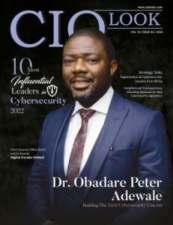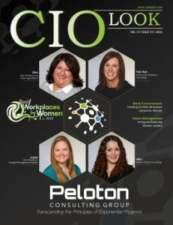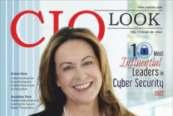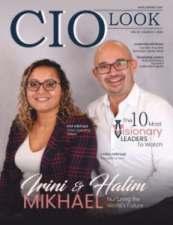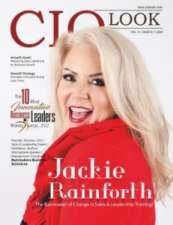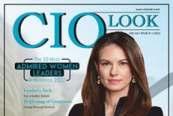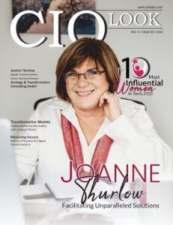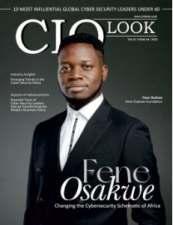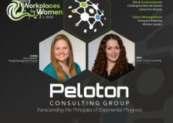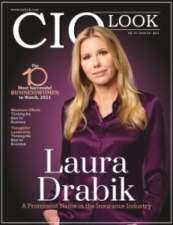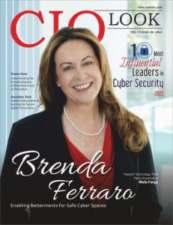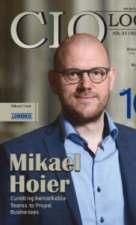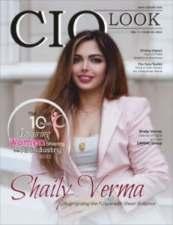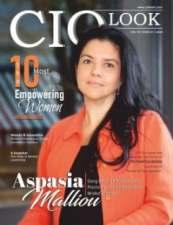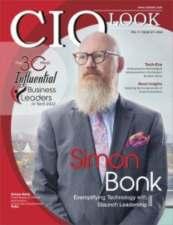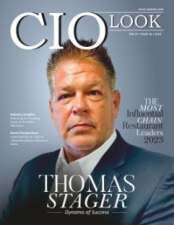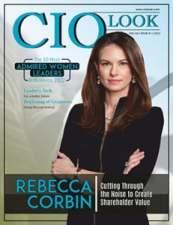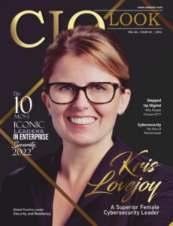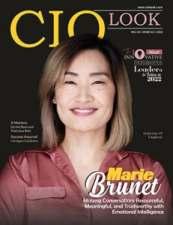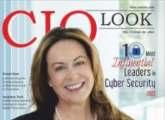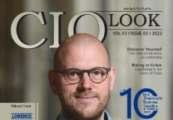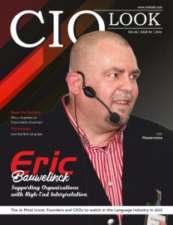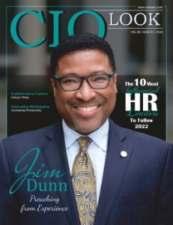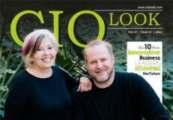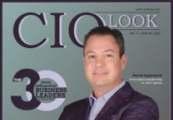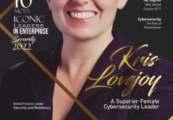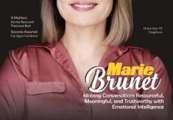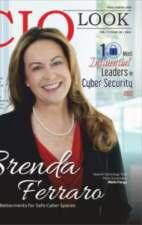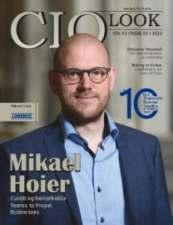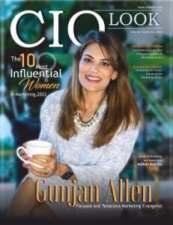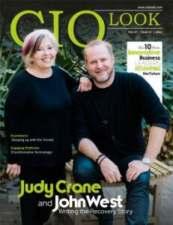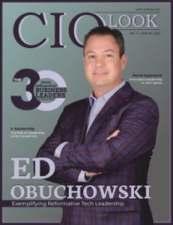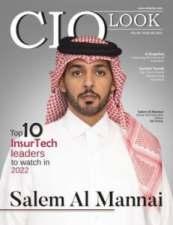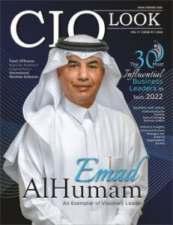














he field of Human Resources (HR) has evolved significantly T over the years, and with that evolution, the role of HR leaders has become increasingly critical to organizational success. Influential HR leaders are strategic thinkers who can align HR initiatives with the overall business strategy. They understand the big picture and can identify ways to leverage HR to drive business outcomes.
Effective communication is a critical skill for HR leaders. They must be able to communicate with all levels of the organization, including senior leaders, managers, and employees. The most influential HR leaders are adaptable and can quickly respond to changes in the business environment. They are flexible in their approach and are willing to adjust their strategies as needed. Data is becoming increasingly important in HR, and influential HR leaders understand the value of data-driven decision-making.
They use data to inform their strategies and initiatives and can effectively communicate the insights derived from data to stakeholders. HR leaders must be collaborative and able to work across different departments and teams. They must be able to build relationships and partnerships to drive HR initiatives. Influential HR leaders are innovative and continuously seek out new ways to improve HR processes and practices. They are not afraid to take risks and experiment with new ideas.
Finally, the most influential HR leaders are empathetic and can connect with employees on a personal level. They understand the importance of employee well-being and are committed to creating a positive workplace culture.
Moreover, the most influential HR leaders possess a unique combination of strategic thinking, strong communication skills, adaptability, data-driven decision-making, collaboration, innovation, and empathy. These qualities enable them to be effective in their roles and drive business outcomes.


Mapping the journey of such exemplary leaders in the HR niche of the dynamic business arena, CIOLook spotlights "The 10 Most Influential Women Leaders in HR, 2023."
Flip through the pages and indulge in the novelties that these adept leaders are empowering in the dynamic business arena.
Abhishek Joshi Abhi s he k Jo s hi







CONTENT
Senior Editor Alan Swann
Executive Editors AbhishekJoshi
Alex Spellman
DESIGN
Visualizer Dave Bates
Art & Design Director Revati Badkas
Associate Designer Ankita Pandharpure
SALES
Senior Sales Manager Sihanee M., Rouniyar A.
Customer Success Manager Michael, Prathamesh
Sales Executives Prajwal, Rohit
TECHNICAL
Technical Head Prachi Mokashi
Technical Consultant Victor Collins
SME-SMO
Research Analyst Eric Smith
SEO Executive Ravindra Kadam
FOLLOW US ON www.facebook.com/ciolook
www.twitter.com/ciolook
WE ARE ALSO AVAILABLE ON Email info@ciolook.com For Subscription www.ciolook.com
CONTACT US ON
Copyright © 2023 CIOLOOK, All rights reserved. The content and images used in this magazine should not be reproduced or transmitted in any form or by any means, electronic, mechanical, photocopying, recording or otherwise, without prior permission from CIOLOOK. Reprint rights remain solely with CIOLOOK.
sales@ciolook.com

April, 2023
Featured Person
David Meltzar Enterprises dmeltzar.com
KIMS Healthcare Management Ltd. kimshealth.org Union Trading Company utc.com.kw
Dania is a strategic HR professional with solid business acumen and experience managing a broad spectrum of people practices.
Hasna brings success, prosperity and durability around common values with shared goals and company objectives.
Jana is an accomplished HR Director with 19 years of diversified experience across all HR functions and within various industries and environments.
Colliers colliers.com
Lydia is a self driven senior HR professional with strength in both strategic and operational HR and a passion for maximising the potential and performance of any organisation's most valuable asset - its people.
Preethy is a seasoned HR leader with over 20 years of international experience impacting positive organizational outcomes. Volaris Group volarisgroup.com
René Markgraaff Human Resource Manager
OKE South Africa Pvt Ltd oke-group.com
René is an expert in providing leadership and management to the OKE Management Team.
RB College of the United Kingdom rb-college.co.uk
Sahar is an HR professional with over 10 years' experience mostly working in HR and training.
Sherine

ABB global.abb
Macro Group Pharmaceuticals macro-egy.com
The Timken Company timken.com
Sheena leads globally a highly-talented team of experienced professionals who partner with leaders to achieve greater people development engagement and retention resulting in high impact business results.
Sherine is an experienced training instructor with a demonstrated history of working in the hospitality industry.
Tanya is self-motivated, professional and hands-on HR Manager with management experience in all aspects of personnel work in the manufacturing industry for Africa and Middle East for a Global company.
Tanya Naudé HR Manager Jana Makarem Director- HR Sahar Samy HR Director Hasna Boughella Zavrak Head of Human Resources Dania Kheyami Head of People Sheena Minhas Global VP of HR and Talent Management Lydia Ings HR Director Preethy Suresh Global Sr. HR Leader Mostafa Human Resources Director
LLarge Multinational Business organisations are
powered by the important elements of People, Technology, Strategies, Quality, Service and Infrastructure. The workforce contributes to the dayto-day functioning of various departments, identifies opportunities, safeguards from threats, and contributes to growth. Leaders who identified and understood the importance of the people in the business have adopted unique strategies and people-centric policies, which has led to the acceleration in the productivity and optimisation of the resources.
Equipped with amazing people-management skills with an understanding of the concerns, Sheena Minhas, Global VP of HR and Talent Management in ABB , has been an inspiring change maker for people and culture. She has been a role model, a vibrant professional in guiding and motivating the employees with the purpose and vision of the organisation. Sheena has aµmcquired the rare skills of emotional intelligence, agility, adaptability, communicating effectively and impactful leadership style inspiring teams in delivering their best.
Sheena Minhas is a military-trained Air force officer turned HR professional. She has 2 decades of progressive expertise in different fields, passionate about influencing and impacting business and leaders, driving professional excellence of experience in diverse sectors and geographies. A strategic thinker with a successful track record of taking on some of the most challenging assignments and removing the barriers to execution.
In an engaging rendezvous with the CioLook, Sheena unfolded her professional journey, her early inspirations, how she developed her career in the human resource domain, and the challenges faced and countered. She elaborated further on the technological impact on today’s business, her advice to young professionals, and her vision for the future.
Below are the excerpts of the same.
Sheena, please tell us about the saga of your reputed business since its inception.
I have worked with US Multinational Company Honeywell and for last 10 plus years associated with ABB Ltd as the Global VP of HR and Talent Management. ABB is a Swedish multinational organisation offering advanced solutions in several streams of electrification, process automation, motion, robotics, and Discrete automation. A global technology leader, ABB has a modern business environment of more than 130 years of engineering excellence, with its 105,000 employees committed to driving innovations that accelerate industrial transformation. I have been entrusted with the role of developing human resource strategies and improving the culture and enhancing employee relations.
I am currently transitioning into ST Microelectronics as Head of Global Talent COE and Group HR, HRS. ST Microelectronics is a global semiconductor company headquartered in Geneva, with French-Italian origin. STM build products,solutions and ecosystems that enable smarter mobility, more efficient power and

I Believe, if your ac�ons inspire others to learn more, dream more, do more.. you are a leader.
energy management and wide scale deployment of Internet of Things and connectivity technologies
What was your inspiration behind venturing into the business arena?
From begining, I always wanted to get involved in areas which create a huge impact, be it joining the Air defence as Fighter Controller , later moving into corporate roles which have large impact in people, processes and transforming businesses and culture of the organization. I was influenced by the strong principles and ideologies of the defence forces which focuses on a Mission (Purpose) and takes People along to make the impact while being Agile, Adaptive and Leading in ambiguous situations. With these principles in mind, I entered the industry for making the required difference from the people’s perspective. I believe that nothing is more important than leading by serving mindset, when people are emotionally invested they contribute the maximum and can do wonders for the organization and society as well. This was my primary inspiration for entering the countrydomain of human resources.
What initial challenges did you have to surmount to ensure your business’s success rate reached greater heights?
With Airforce background coming to corporate itself was a huge shift, where I faced the initial challenges of driving any change, be it related to technology, process or policy.However eagerness to embrace the counterintuitive has been a key differentiator to make a positive impact in every endeavour. A solid learning from controlling Fighter Planes in Airforce, I could lead and manage complex crisis situations with calmness and decisiveness. I could see the benefit in making the alignment with the long-term strategy and making progressive steps leveraging all communication channels and engaging people to lead change driving transformations across the organisation.
The second aspect was in bringing about an impactful leadership with a collaborative approach in getting things done. I strongly believe that people want to part of high performing organisation and want to make a difference, same time also be rewarded appropriately. I have worked along in creating engagement strategies and executed them to build accountability and same time differentiate based on performance. Communication of organisation
purpose and alignment is very crucial , We continuously strive to break barriers and build trust to enhance the growth of the organisation and its people. Creating ownership and accountability for people processes has helped build that culture of Inclusion
What professional values and qualities do you think your clients value most in you ?
Well, that’s a tricky question. (Sheena smiled) I have lived life in the Air force with the qualities deeply imbibed in my character. I am calm, structured and decisive under pressure. My approach is of being curious and committed to the principles of the organisation. People trust me because of I bring to the table an ability to prioritise, making complex topics simple and having credibility of delivering what is committed on time.
Over last few years I have worked on myself on being more resilient and authentic, strongly believe that personal transformation is inter-related to organisational transformation
What are the USPs that highlight your brand/company’s uniqueness in the industry you are catering to?
Global footprints in more than 100 countries, Customer centricity ,Skilled workforce, best in class technology & products. The company’s philosophy highlights the best service that enables organisations in excellent performance and productivity. As a Human Resource function leader I prefer to walk the talk and share the vision and values of the organisation. to all our employees, associations, customers, and all of the industry at large.
As an experienced professional, what would you like to advise the budding aspirants willing to enter the business world?
The HR career can be a fulfilling and exciting experience; advice is to strongly align & exhibit these traits of
Emotional Intelligence – The role demands to be a conduit between the expectations of the employer and the employee experience. Having ‘HR’ in your job title does not mean that it is an inherent strength to have
emotional intelligence and compassion; this needs powerful listening skills; hearing what is really being said and ensuring that employees feel heard and valued should not be underestimated.
Self-discipline – As a functional expert demonstrate ownership, tenacity, and accountability with a high ‘Say-Do’ Ratio
Courage to call out the courage to stand up and say what others are not willing to and the same time challenge the old hierarchical ways to bring more Agility in the people processes.
I am passionate about people and culture topics and lead transformation across large global organizations. Currently transitioning from ABB to ST ST Microelectronics as Head of Global Talent COE and Group HR, HRS. I am always keen to be in roles with high impact and challenge, believe that “Impactful leaders are those who make others better in their presence so that their impact lasts longer even in their absence.”

How do you envision your company’s operations with the emerging technologies and automated tools that are revolutionizing the business world by enabling innovations?
Emerging technologies are used extensively to improve resiliency,scale on demand and implement solutions rapidly.What makes us different is to have this in Alignment with business objectives with Stakeholders inputs and out side in perspective always. To enable a culture where Innovation flourishes its important to reward courage and curiosity ,hense Failing fast but failing cheap is an important aspect. I believe to advance further we need to focus more on personalized experience with culture of accountablity and empowerment.

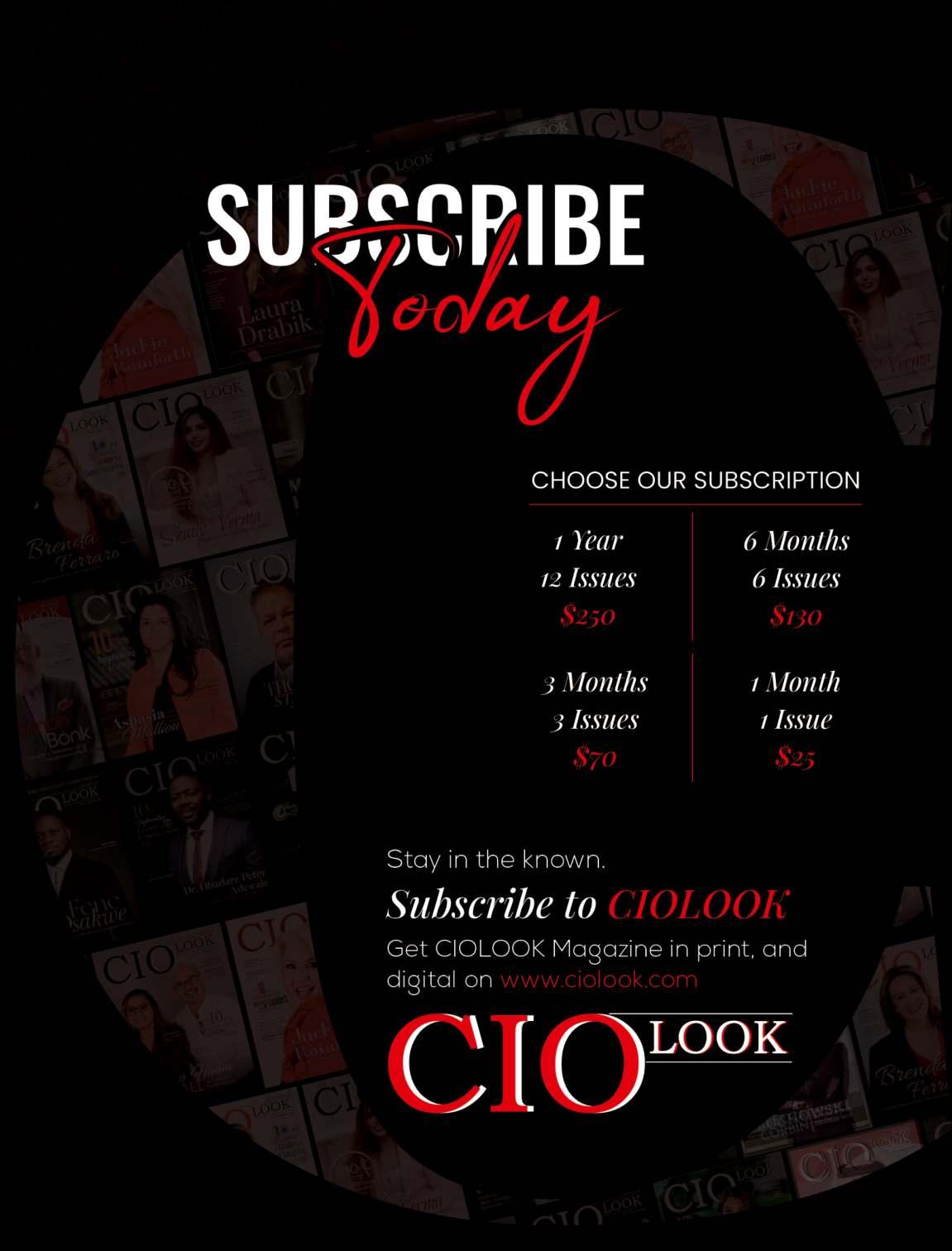

How HR Leaders are Enabling Advancements in the Organizations? Enabling Advancements in the Organizations? How HR Leaders are

Human Resources (HR) leaders play a critical role

in organizations, not only in managing personnel but also in driving advancements and fostering a culture of growth and innovation. In today's dynamic business landscape, HR leaders are taking on strategic responsibilities and actively enabling advancements within their organizations. This article explores the ways in which HR leaders contribute to organizational advancements and highlights their role in shaping the future of work.
HR leaders are at the forefront of strategic workforce planning, ensuring that organizations have the right talent in place to drive advancements. By analyzing business goals, identifying skills gaps, and forecasting future needs, HR leaders can develop comprehensive workforce strategies. They work closely with business leaders to align talent acquisition, development, and retention strategies with organizational objectives. Strategic workforce planning enables organizations to stay agile, adapt to market changes, and effectively leverage talent for growth and innovation.
HR leaders foster a learning culture within organizations by emphasizing continuous development and providing learning opportunities for employees. They design and implement training programs, mentorship initiatives, and knowledge-sharing platforms to enhance employees' skills and capabilities. By encouraging a growth mindset and promoting a culture of continuous learning, HR leaders enable employees to acquire new skills, adapt to emerging technologies, and drive advancements within their respective roles.
HR leaders play a crucial role in attracting and retaining top talent, which is essential for organizational advancements. They develop comprehensive recruitment strategies, leveraging various channels to attract diverse and qualified candidates. HR leaders also focus on employer branding, ensuring that the organization's values and culture resonate with
potential candidates. Moreover, they implement employee engagement initiatives, career development programs, and performance management systems to enhance retention rates and create an environment conducive to innovation and growth.
HR leaders are instrumental in managing organizational change and fostering agility. In the face of technological advancements and evolving business landscapes, HR leaders help organizations adapt by implementing change management strategies. They communicate effectively with employees, address concerns, and facilitate smooth transitions during periods of change. HR leaders also focus on developing an agile workforce that can quickly respond to market disruptions and embrace new opportunities.
HR leaders recognize the importance of employee wellbeing and work-life balance in driving organizational advancements. They implement initiatives to support employees' physical, mental, and emotional well-being. This includes offering flexible work arrangements, promoting work-life balance, and providing resources for stress management and mental health support. By prioritizing employee well-being, HR leaders create a positive and productive work environment, leading to higher engagement and better performance.

HR leaders champion diversity, equity, and inclusion within organizations, recognizing that diverse perspectives drive innovation and advancements. They implement strategies to foster an inclusive culture, ensuring that employees from all backgrounds feel valued and respected. HR leaders actively promote diversity in hiring practices, create opportunities for underrepresented groups, and implement training programs to raise awareness and address unconscious biases. By embracing DEI, organizations can tap into a broader talent pool and benefit from diverse perspectives that drive advancements and fuel innovation.
HR leaders play a vital role in implementing effective performance management systems and aligning
individual goals with organizational objectives. They establish performance metrics, provide regular feedback, and facilitate goal-setting processes that drive employee engagement and productivity. By ensuring that employees' efforts are directed towards strategic priorities, HR leaders contribute to advancements by maximizing individual and team performance.
HR leaders focus on developing leadership capabilities and implementing succession planning initiatives. They identify high-potential employees, provide leadership development opportunities, and cultivate a pipeline of future leaders within the organization. By nurturing a strong leadership bench, HR leaders enable smooth transitions during periods of change and ensure a sustainable talent pool for continued advancements.

HR leaders embrace technology and drive digital transformation within the HR function and across the organization. They leverage HR technology platforms, such as human capital management systems and analytics tools, to streamline processes, improve datadriven decision-making, and enhance employee experiences. By embracing digital advancements, HR leaders enable greater efficiency, data-driven insights, and the automation of routine tasks, allowing employees to focus on strategic initiatives and driving advancements.
HR leaders are instrumental in enabling advancements within organizations by driving strategic workforce planning, cultivating a learning culture, attracting and retaining top talent, managing change, prioritizing employee well-being, promoting diversity and inclusion, and leveraging technology.
Through their efforts, HR leaders create an environment that empowers employees, fosters collaboration, and embraces continuous improvement. By recognizing the critical role of HR leaders and investing in their development, organizations can unlock the full potential of their workforce and achieve sustainable advancements in today's rapidly evolving business landscape.





Transcending into various roles and backgrounds
while gaining extensive expertise and experience and becoming a transformative leader with many immersive strategies, Jana Makarem joined Union Trading Company as Head of HR and Admin . She was also overseeing the Legal and Logistics department. Jana is part of the executive committee reporting to the CEO.
UTC has been around since 1949 and has two major lines of business; one is retail and the other is wholesale distribution. UTC has a large, diversified portfolio of brands such as General for ACs; Glem Gas under home appliances; Hanes, Jockey, Gildan, fruit of the loom, Wrangler, and Lee in Apparel; Vileda and prestige under FMCG; Braun kitchen wear and a lot more. It currently has over 650 active employees and is still growing.
The journey of getting into the HR industry sparked when Jana's first official HR-related job was with AMK (Al Khorafi National Group). She joined the company in June 2004, right after she graduated from university. Jana's job was in project management, and she was tasked with recruiting certain roles for a project. At that moment, Jana realized she needed to shift her career to Human Resources.
Today, Jana spearheads the personnel, admin, and legal department as the Director of HR . She climbed up the ranks within the HR division across various companies and eventually joined UTC in September 2019.
As a business leader, Jana shares valuable facts highlighting her leadership role at UTC and the changes she has been implementing to drive organizational improvement.
Below are the highlights of the interview:
Tell us more about your company and its mission and vision; how does it thrive towards enabling advancements in the dynamic business arena?
UTC's mission and vision haven't changed since it was founded in 1949. The mission is "To provide our customers with top quality products and widest variety of day-to-day goods"; to this date, our motto is to get the best quality products with affordable prices so we can reach the largest group of people.
The Vision is "To uphold our longstanding legacy as a leading retailer and distributor, with full dedication to our partners and customers.”
Exhibiting a Staunch Leadership AcumenUnion Trading Company relies on giving the best quality products and services to our internal and external customers. It is part of the company's mission statement.

UTC was founded by two entrepreneurs: Late Mr. Abdulrazzaq Razzouqi and Late Mr. Daniel Hasso. The descendants of the two families still own the company. I rd joined in 2019 after the 3 generation descendants were elected as the new Board of Directors, and they had a mission to uplift the company to meet the new era of business.
We have worked relentlessly with the top management to make innovation a core value. We have hired qualified personnel bringing different expertise and perspectives to the company.
We have implemented an employee recognition system where hard-working personnel are being recognized by management: fully supported teamwork and innovative ideas. We have revamped the processes and workflow and introduced a new ERP system.
Enlighten us on how you have impacted the niche through your expertise in the market.
There have been a lot of changes that have developed since I joined UTC. I had a cultural shock when I joined the company in September 2019. Each department acted as the sole entity reporting to the CEO, with no connections between them. The office had high compartments separating the departments and employees. Some employees have worked together in the company for more than 20 years and don't know one another.
The first thing I did when I joined was, I removed the high partitions and made an open workspace, and have all the departments sit together.
We started a weekly community get-together, where each department discusses its recent news, and all employees share a bite. This was to promote communication and allow the employees to be informed and involved in the operation. We have developed policies and procedures that align with the Kuwait Labor law.
Gathered employee information and developed a nonexisting master sheet. Developed excel sheets with macros to calculate the payroll, leaves, and indemnities. Developed appraisal process and personal development plans for employees. Developed business strategies to keep going through lockdown without having to terminate any employees, which resulted in
closing the year with growth. Negotiated rent contracts in the past 3 years, saving the company 700K. Negotiated supplier contracts for legal and commercial terms and set a threshold for future dealings. Restructured the shop's staff capacity based on each shop's location, size, sales and footfall, improved shop efficiency, and increased sales by 15%. Enhanced and implemented new inventory policies that reduced merchandise error by 30%. Restructured the commission plan to be paid on revenue rather than sales and saved a margin of 12% for the company.
Transformed previously unstructured, underperforming departments into cost-efficient, highly utilized entities and showed up to 42% improvement in services according to the corporate performance management systems.
What fundamentals do you implement to drive betterment within your organization's work culture?
Ÿ Being Transparent as a Leader. Being honest with employees and meeting them at the same level develops trust and a strong bond between the employee and manager.
Ÿ Eliminating the toxic environment; providing a culture where the employees are comfortable to be themselves and thrive. (Flexibility of work schedule, working remotely, etc.)
Ÿ Frequent coaching and mentoring
Ÿ Recognize an individual's contribution and give credit.
Ÿ Communication is the key. Communicating expectations regularly.
Describe in detail the values and the work culture that drives your organization.
There are 5 values that Union Trading company that are most essential and sought after:
Ÿ Respect: we value all employees and treat them with respect. We have employees with a tenure of over 30 years; thus, they are treated as family members.
Ÿ Integrity: I stress this value because it is the most important. We, as a company, builds trust with suppliers and customers by always fulfilling promises and being honest. UTC has built its reputation of being what it is through responsible
actions and honest relationships.
Ÿ Quality: Union Trading Company relies on giving the best quality products and services to our internal and external customers. It is part of the company's mission statement.
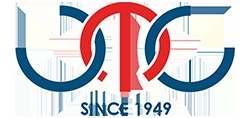
Ÿ Teamwork is a recent core value adopted in UTC; the management believes that success comes from all departments working efficiently together to achieve the goals.
Ÿ Customer Commitment: we aim to increase consumer satisfaction, build long-term relationships, and ensure clients become repeat buyers, and recommend the brand to their friends.
Where do you envision yourself to be in the long run, and what are your future goals for your company?
I want to grow a bit out of the HR role into general management or operations. In the past 3 years and a half, I had the opportunity to be directly involved in operations, and I loved it and excelled at it. My goal for the company is to remain the best workplace, where employees are empowered and trusted in their job and recognized for hard work.

What would be your advice to budding entrepreneurs who aspire to venture into the dynamic business arena?
I advise taking care of your human assets because they are the reason for success in any organization.


Human Resources (HR) leaders play a crucial role
in driving positive change and advancements within organizations. In today's dynamic business arena, HR leaders must possess certain essential traits that enable them to navigate complexity, inspire teams, and facilitate meaningful improvements. This article explores the key traits of HR leaders that contribute to betterments in the everchanging business landscape.

Strategic Vision:
HR leaders with a strategic vision have the ability to align HR initiatives with broader organizational goals. They understand the business context, industry trends, and competitive landscape, allowing them to develop HR strategies that support the organization's growth and drive betterments. By linking HR practices to the overall business strategy, these leaders ensure that HR efforts contribute directly to the organization's success.
Change Agility:
In a dynamic business environment, HR leaders need to be agile and adaptable. They embrace change, anticipate shifts in the industry, and proactively seek opportunities to drive improvements. These leaders are comfortable with ambiguity and can effectively navigate through uncertainty. Their change agility
enables them to lead organizational transformations, implement new initiatives, and continuously improve HR processes to meet evolving business needs.

Strong Communication and Influence Skills:

Effective communication and influence skills are paramount for HR leaders. They possess exceptional listening skills and are adept at conveying complex information in a clear and compelling manner. HR leaders build strong relationships with stakeholders across the organization, including executives, managers, and employees. Their ability to influence and persuade others helps drive buy-in for HR initiatives, ensuring successful implementation and betterments within the organization.
Business Acumen:
HR leaders with strong business acumen possess a deep understanding of the organization's operations, financials, and market dynamics. They go beyond traditional HR functions and proactively seek insights into the broader business context. By staying informed about industry trends, customer demands, and competitors, HR leaders can align HR strategies with the business objectives, identify areas for improvement, and contribute to betterments that positively impact the bottom line.
Emotional Intelligence and Empathy:
Emotional intelligence and empathy are essential traits for HR leaders driving betterments in the dynamic business arena. They understand the needs, motivations, and emotions of employees, enabling them to create a supportive and inclusive work environment. HR leaders with high emotional intelligence can effectively handle conflicts, build trust, and promote employee engagement. Their empathy helps them connect with employees, address their concerns, and design HR initiatives that prioritize employee wellbeing and development.
Continuous Learning Mindset:
Successful HR leaders have a continuous learning mindset and actively seek opportunities for personal and professional growth. They stay updated on the latest HR trends, technologies, and industry best practices. This mindset allows them to bring innovative ideas and approaches to their roles, fostering a culture of continuous improvement within the HR function and across the organization. By embracing lifelong learning, HR leaders can drive betterments and keep organizations at the forefront of industry advancements.
Resilience and Adaptability:
In a rapidly changing business landscape, HR leaders must be resilient and adaptable. They are comfortable with ambiguity, bounce back from setbacks, and remain focused on their goals. These leaders can quickly adjust their strategies and approaches in response to unforeseen circumstances, market shifts, or organizational changes. Their resilience and adaptability allow them to lead their teams through challenges and drive betterments even in the face of adversity.
HR leaders who leverage data and analytics to drive decision-making are more effective in improving organizational outcomes. They understand the importance of gathering and analyzing HR metrics, employee feedback, and market trends to make informed decisions. By using data, HR leaders can identify areas for improvement, develop evidencebased strategies, and measure the impact of HR
initiatives on key performance indicators. Collaboration and Relationship Building:
HR leaders who prioritize collaboration and relationship building foster a culture of teamwork and cooperation within the organization. They actively partner with leaders from different departments to understand their needs and align HR strategies accordingly. By building strong relationships, HR leaders gain credibility and support for HR initiatives, driving betterments through cross-functional collaboration and shared objectives.
Innovative Thinking:
Innovation is a critical trait for HR leaders driving betterments. They continuously seek new ways to enhance HR practices, employee experiences, and organizational effectiveness. These leaders embrace emerging technologies, trends, and methodologies to improve HR processes, such as recruitment, talent development, and performance management. Their innovative thinking leads to creative solutions, increased efficiency, and better outcomes.
Ethical and Values-Driven Leadership:

HR leaders with strong ethical values promote integrity, fairness, and transparency within the organization. They uphold ethical standards in decisionmaking, employee relations, and HR policies. By demonstrating ethical leadership, HR leaders build trust and credibility among employees, fostering a positive work culture that drives betterments and employee satisfaction.
HR leaders who possess traits such as data-driven decision-making, collaboration, innovation, ethical leadership, global awareness, and resolute decisionmaking are well-equipped to drive betterments in the dynamic business arena. These traits enable HR leaders to adapt to changing environments, align HR strategies with organizational goals, and create a positive work culture that fosters growth and innovation. By embodying these traits, HR leaders contribute to organizational success and drive continuous improvement in today's rapidly evolving business landscape.






